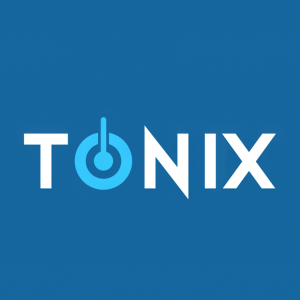Tonix Pharmaceuticals Receives First Contract Payment from U.S. Department of Defense for Accelerated Development of Broad-Spectrum Antivirals with the Defense Threat Reduction Agency (DTRA)
Rhea-AI Summary
Tonix Pharmaceuticals (Nasdaq: TNXP) has received its first payment from the Defense Threat Reduction Agency (DTRA) under a contract worth up to $34 million over five years. The funding aims to develop broad-spectrum antiviral agents for protecting military personnel in biological threat environments. This non-dilutive funding supports Tonix's ongoing research to advance its antiviral discovery program.
The contract will accelerate the development of Tonix's broad-spectrum antiviral program, focusing on phosphatase inhibitors targeting CD45. The company plans to optimize lead compounds for therapeutic intervention against biothreat agents. Tonix will utilize its research facilities, including a Biosafety Level 3 (BSL-3) lab at its research and development center in Frederick, Md., to carry out this work.
Positive
- Secured a contract worth up to $34 million over five years from the U.S. Department of Defense
- Received first payment under the DTRA contract, providing non-dilutive funding
- Validation of Tonix's antiviral discovery program by a government agency
- Access to state-of-the-art research facilities, including a BSL-3 lab, for project execution
Negative
- None.
News Market Reaction 1 Alert
On the day this news was published, TNXP gained 12.83%, reflecting a significant positive market reaction.
Data tracked by StockTitan Argus on the day of publication.
First payment received under Tonix’s contract with the Defense Threat Reduction Agency (DTRA), for up to
CHATHAM, N.J., Oct. 17, 2024 (GLOBE NEWSWIRE) -- Tonix Pharmaceuticals Holding Corp. (Nasdaq: TNXP) (Tonix or the Company), a fully-integrated biopharmaceutical company with marketed products and a pipeline of development candidates, received its first payment from the Defense Threat Reduction Agency (DTRA), an agency within the U.S. Department of Defense (DoD), to develop small molecule broad-spectrum antiviral agents for the prevention or treatment of infections to improve the medical readiness of military personnel in biological threat environments. The previously announced award from DTRA is for up to
“This award provides important validation and substantial non-dilutive funding for our ongoing research to advance our antiviral discovery program,” said Seth Lederman, M.D., Chief Executive Officer of Tonix Pharmaceuticals “With biological adaptations and mutations happening to viruses rapidly across the globe, this research will be crucial in order to protect lives in the event biological threats are introduced onto the battlefield.”
The
Tonix will utilize its state-of-the-art research laboratory capabilities, including a Biosafety Level 3 (BSL-3) lab at its research and development center (RDC) facility located in Frederick, Md., as well as experienced personnel in-house. The RDC is located in Maryland’s ‘I-270 biotech corridor’ and is close to the center of the U.S. biodefense research community.
About Defense Threat Reduction Agency (DTRA)
The Defense Threat Reduction Agency (DTRA), an agency within the United States Department of Defense (DoD) is both a Defense Agency and Combat Support Agency with two distinct yet highly integrated roles countering Weapons of Mass Destruction (WMD) and emerging threats. Its origins stretch back to World War II and the Manhattan Project, but today the agency encompasses a wide variety of strategic and operational functions that deter, prevent, and ultimately prevail against these unique threats. DTRA enables the Department of Defense (DoD), the United States Government and international partners to counter and deter weapons of mass destruction (WMD) and emerging threats. DTRA provides cross-cutting solutions to enable the Department of Defense, the United States Government, and international partners to deter strategic attack against the United States and its allies; prevent, reduce, and counter WMD and emerging threats; and prevail against WMD-armed adversaries in crisis and conflict. DTRA’s continued effort to enhance the combat support mission also advances public health services by developing innovative technologies that protect against biological threats. For more information, visit www.dtra.mil.
Tonix Pharmaceuticals Holding Corp.**
Tonix is a fully integrated biopharmaceutical company focused on transforming therapies for pain management and modernizing solutions for public health challenges. Tonix’s development portfolio is focused on central nervous system (CNS) disorders, and its priority is to progress TNX-102 SL, a product candidate for which an NDA was submitted based on two statistically significant Phase 3 studies for the management of fibromyalgia. The FDA has granted Fast Track designation to TNX-102 SL for the management of fibromyalgia. TNX-102 SL is also being developed to treat acute stress reaction and acute stress disorder under a Physician-Initiated IND at the University of North Carolina in the OASIS study funded by the U.S. Department of Defense (DoD). Tonix’s CNS portfolio includes TNX-1300 (cocaine esterase), a biologic in Phase 2 development designed to treat cocaine intoxication that has FDA Breakthrough Therapy designation and its development is supported by a grant from the U.S. National Institude of Drug Abuse and Addiction (NIDA). Tonix’s immunology development portfolio consists of biologics to address organ transplant rejection, autoimmunity and cancer, including TNX-1500, which is an Fc-modified humanized monoclonal antibody targeting CD40-ligand (CD40L or CD154) being developed for the prevention of allograft rejection and for the treatment of autoimmune diseases. Tonix also has product candidates in development in the areas of rare disease, including TNX-2900 for Prader-Willi syndrome, and infectious disease, including a vaccine for mpox, TNX-801. Tonix recently announced a contract with the U.S. DoD’s Defense Threat Reduction Agency (DTRA) for up to
* Tonix’s product development candidates are investigational new drugs or biologics; their efficacy and safety have not been established and have not been approved for any indication.
Zembrace SymTouch and Tosymra are registered trademarks of Tonix Medicines. All other marks are property of their respective owners.
This press release and further information about Tonix can be found at www.tonixpharma.com.
Forward Looking Statements
Certain statements in this press release are forward-looking within the meaning of the Private Securities Litigation Reform Act of 1995. These statements may be identified by the use of forward-looking words such as “anticipate,” “believe,” “forecast,” “estimate,” “expect,” and “intend,” among others. These forward-looking statements are based on Tonix's current expectations and actual results could differ materially. There are a number of factors that could cause actual events to differ materially from those indicated by such forward-looking statements. These factors include, but are not limited to, risks related to the failure to obtain FDA clearances or approvals and noncompliance with FDA regulations; risks related to the failure to successfully market any of our products; risks related to the timing and progress of clinical development of our product candidates; our need for additional financing; uncertainties of patent protection and litigation; uncertainties of government or third party payor reimbursement; limited research and development efforts and dependence upon third parties; and substantial competition. As with any pharmaceutical under development, there are significant risks in the development, regulatory approval and commercialization of new products. Tonix does not undertake an obligation to update or revise any forward-looking statement. Investors should read the risk factors set forth in the Annual Report on Form 10-K for the year ended December 31, 2023, as filed with the Securities and Exchange Commission (the “SEC”) on April 1, 2024, and periodic reports filed with the SEC on or after the date thereof. All of Tonix's forward-looking statements are expressly qualified by all such risk factors and other cautionary statements. The information set forth herein speaks only as of the date thereof.
Investor Contact
Jessica Morris
Tonix Pharmaceuticals
investor.relations@tonixpharma.com
(862) 904-8182
Peter Vozzo
ICR Westwicke
peter.vozzo@westwicke.com
(443) 213-0505
Media Contact
Ray Jordan
Putnam Insights
ray@putnaminsights.com
(949) 245-5432









